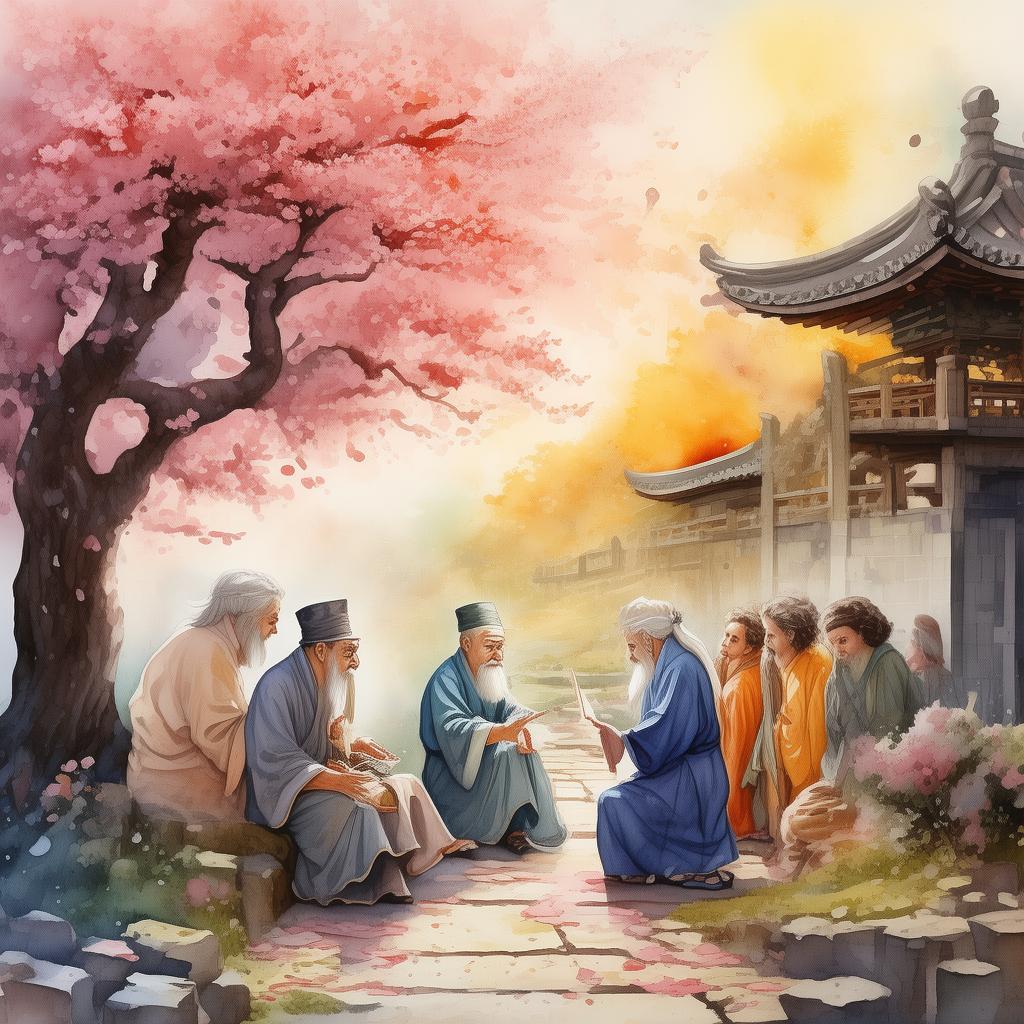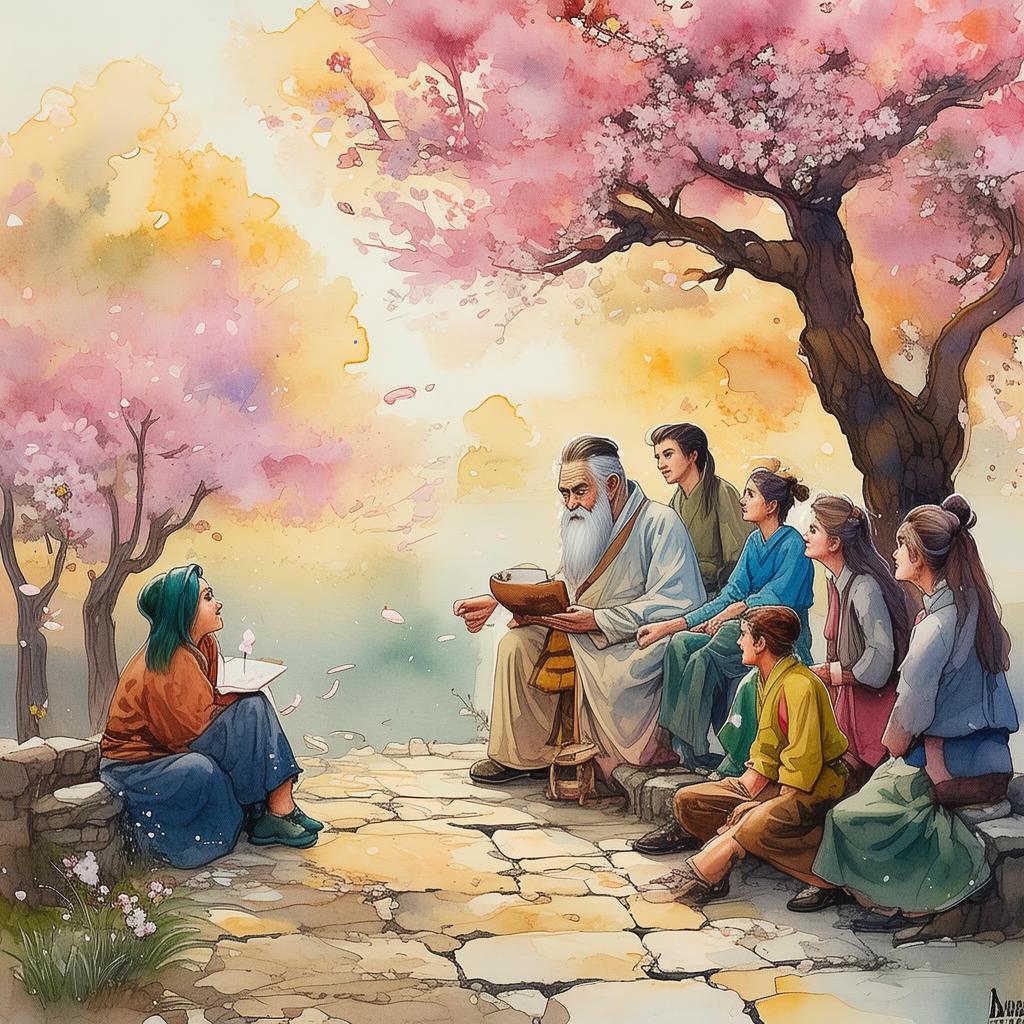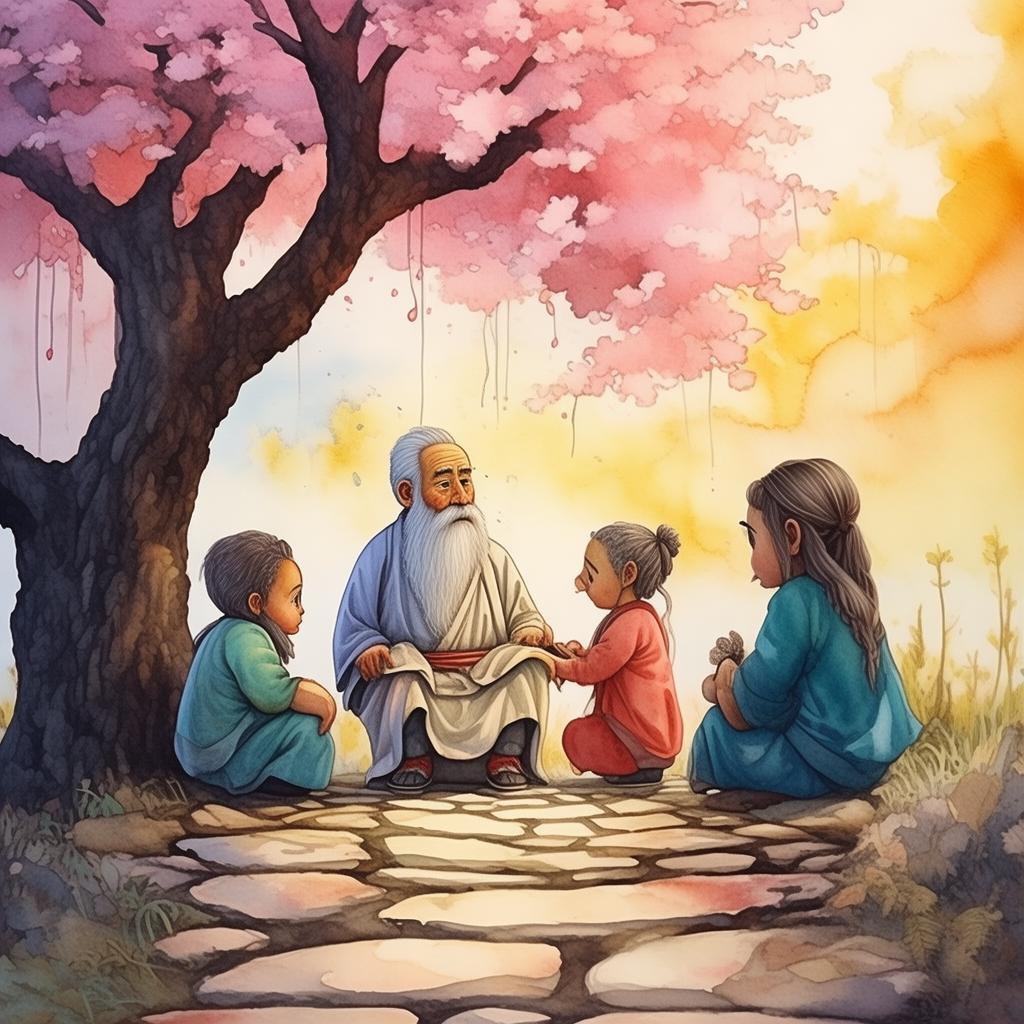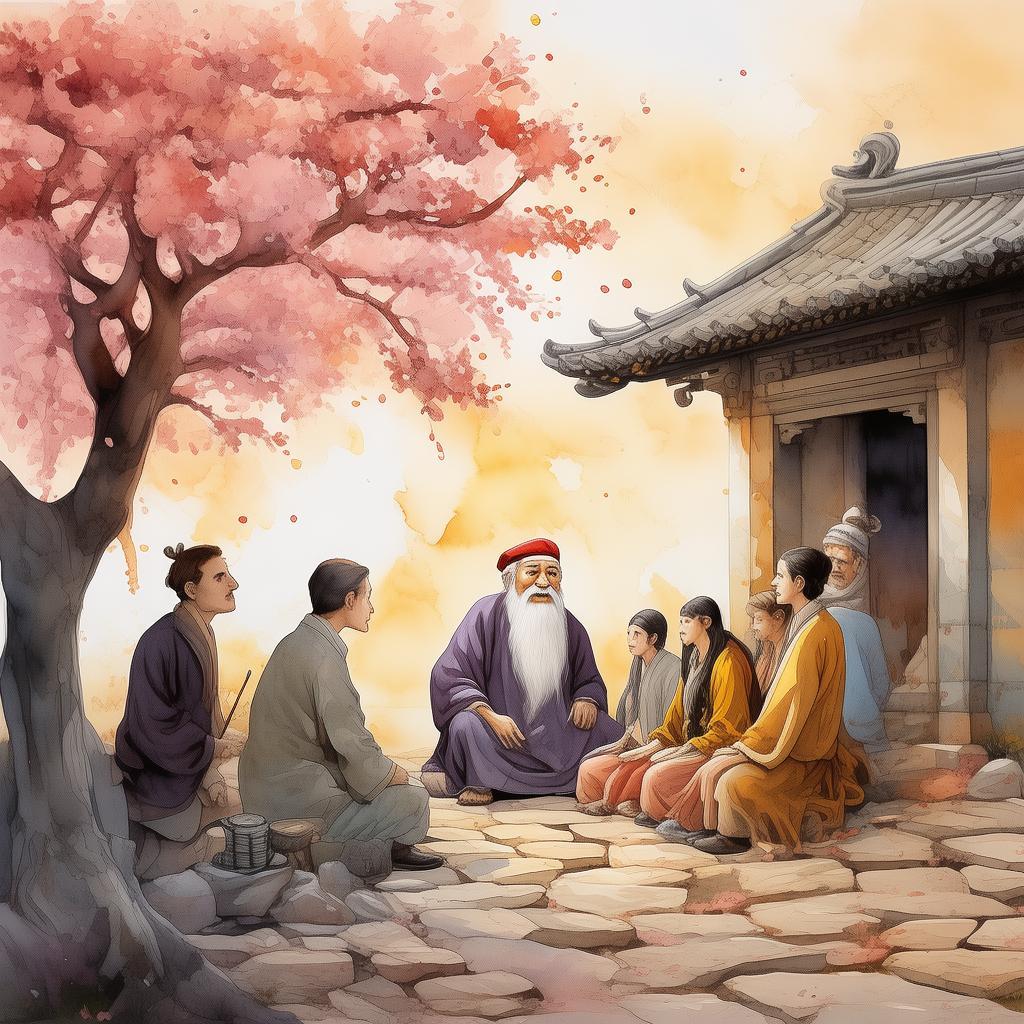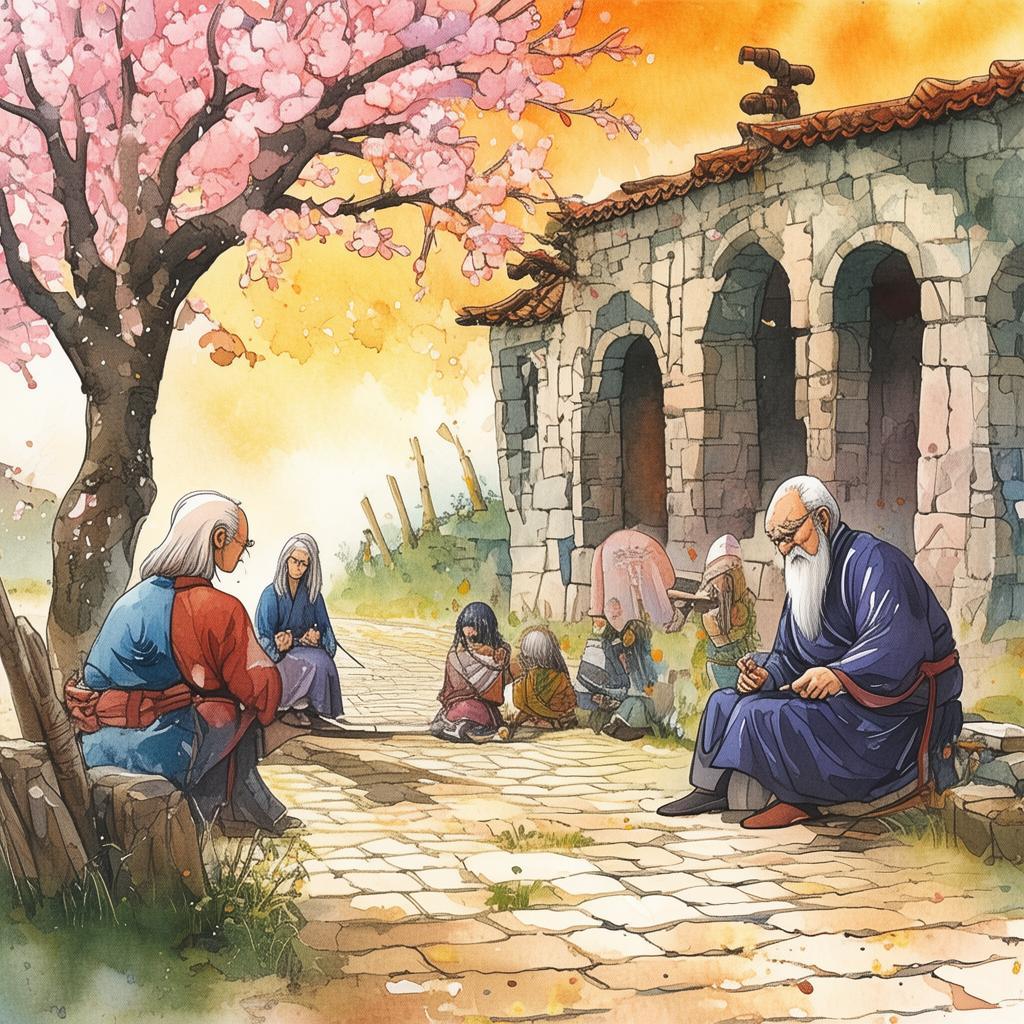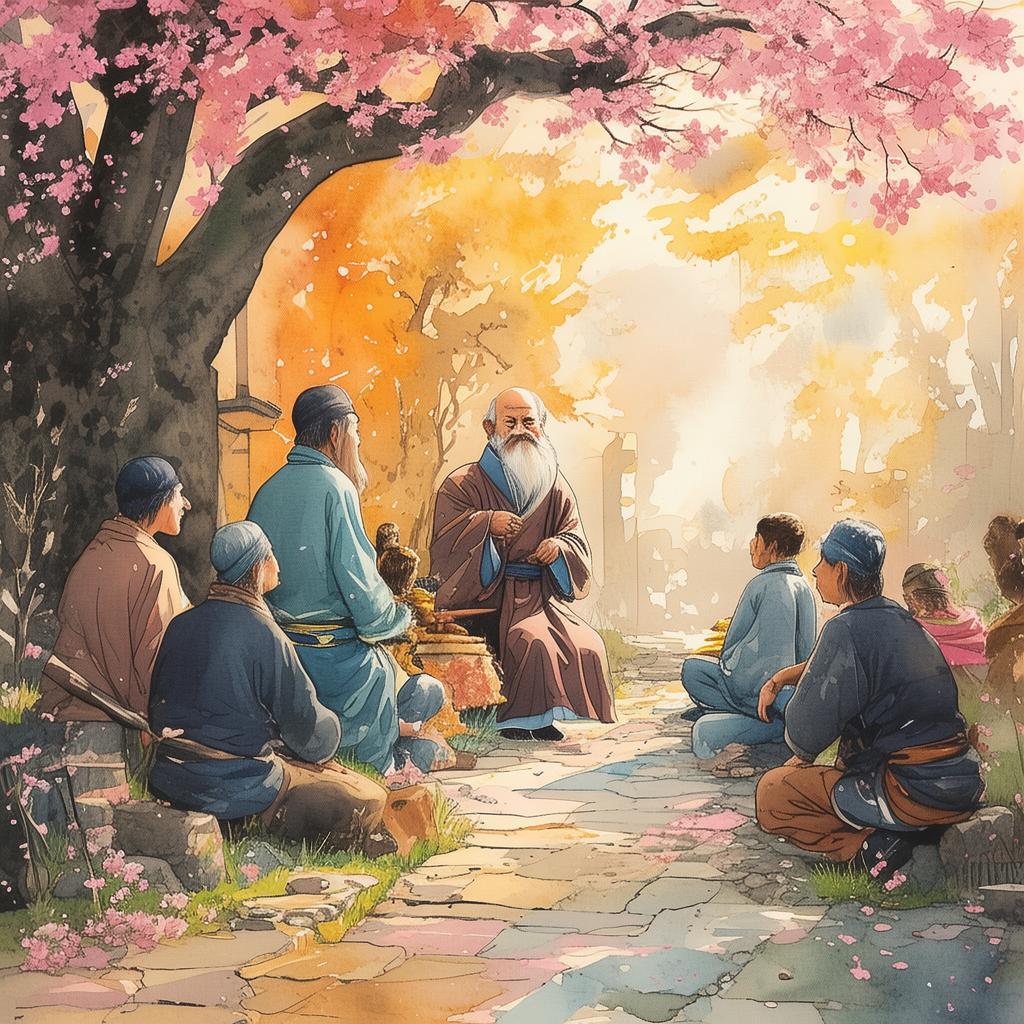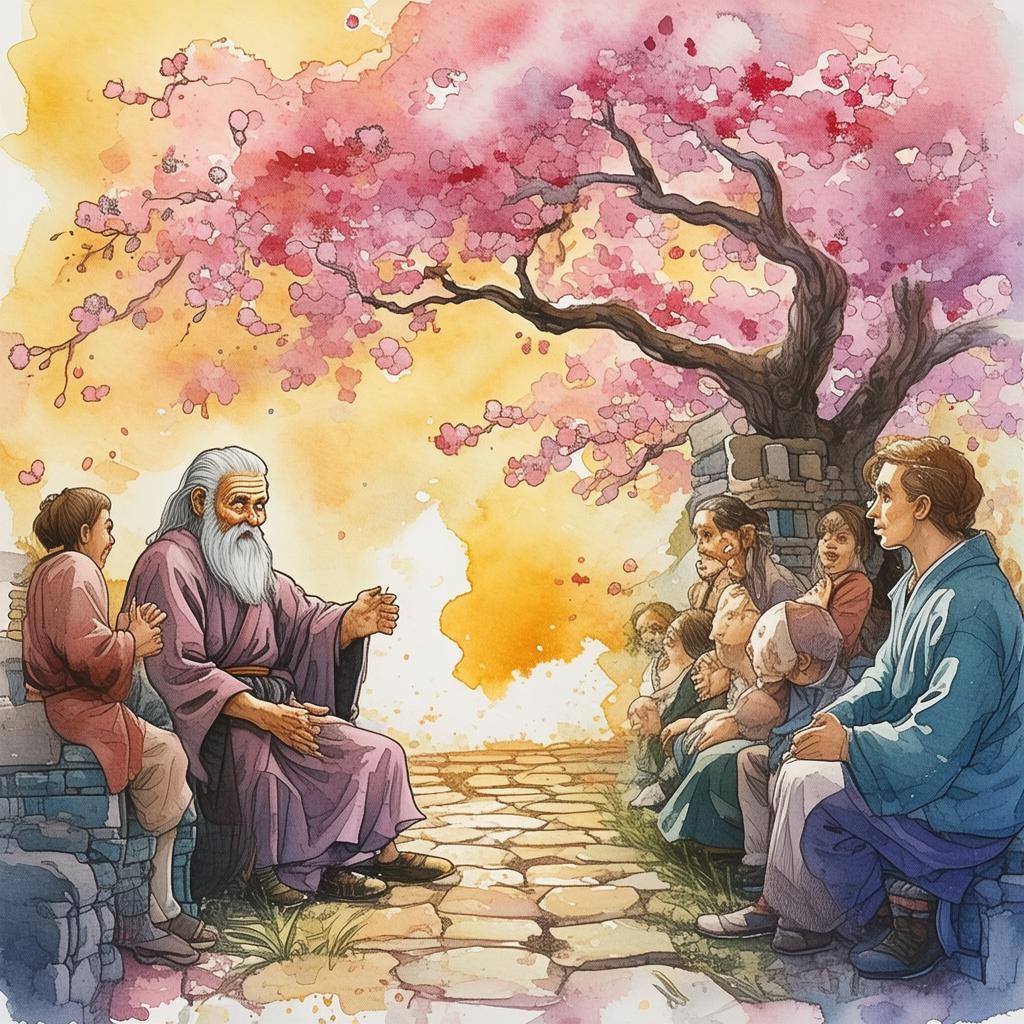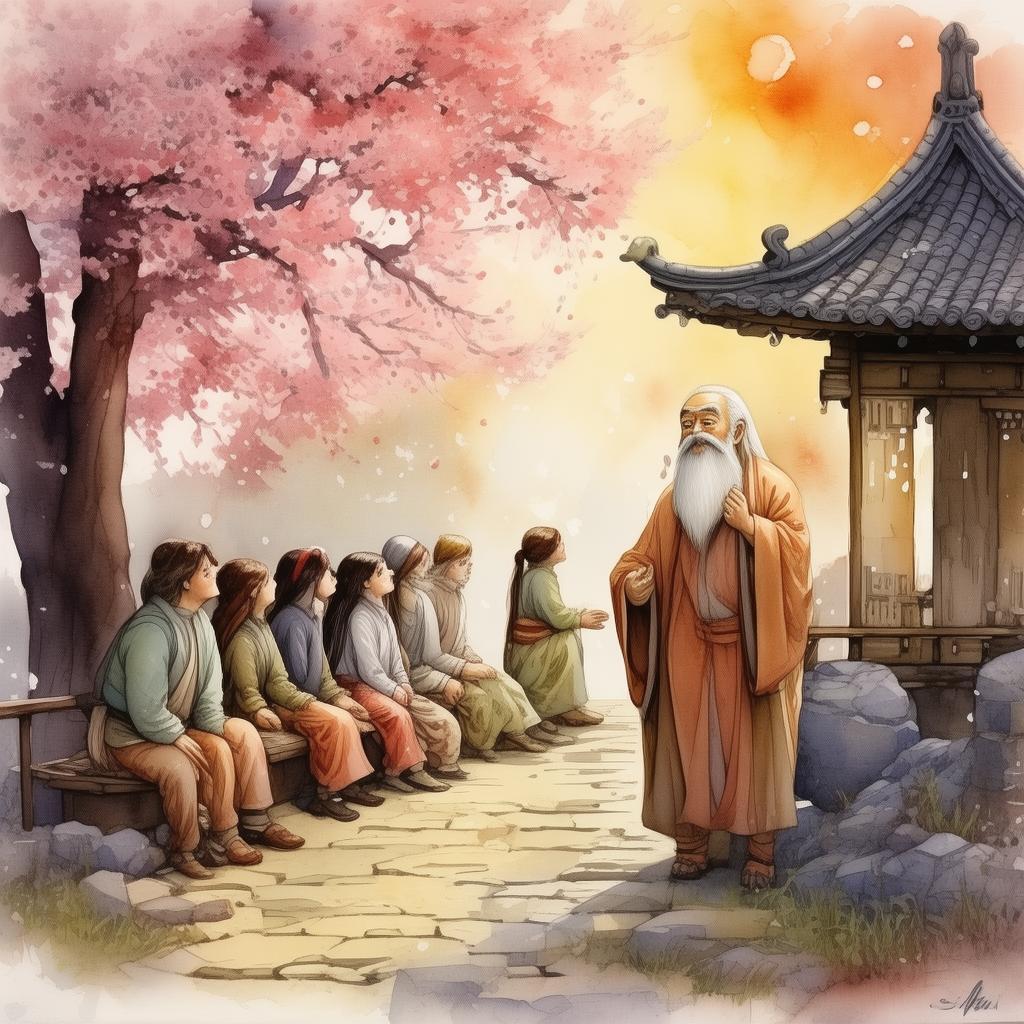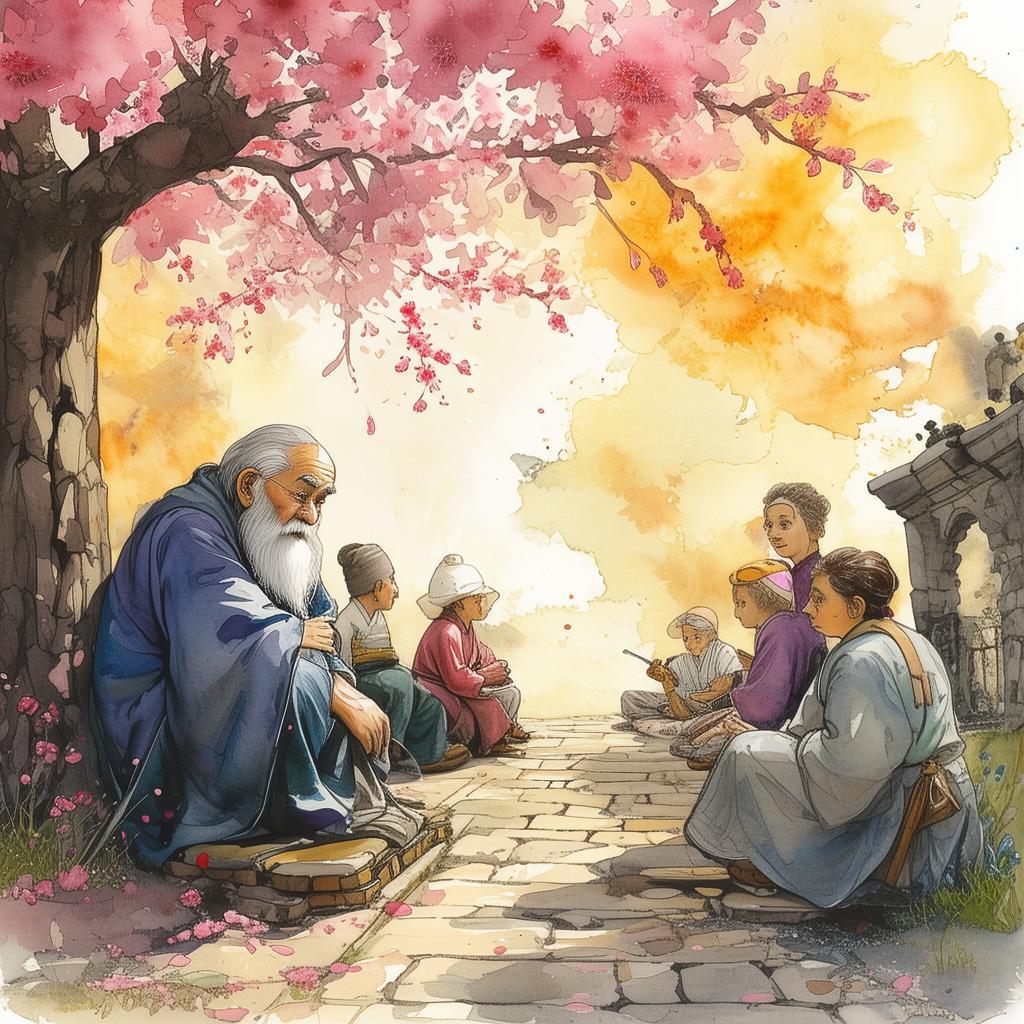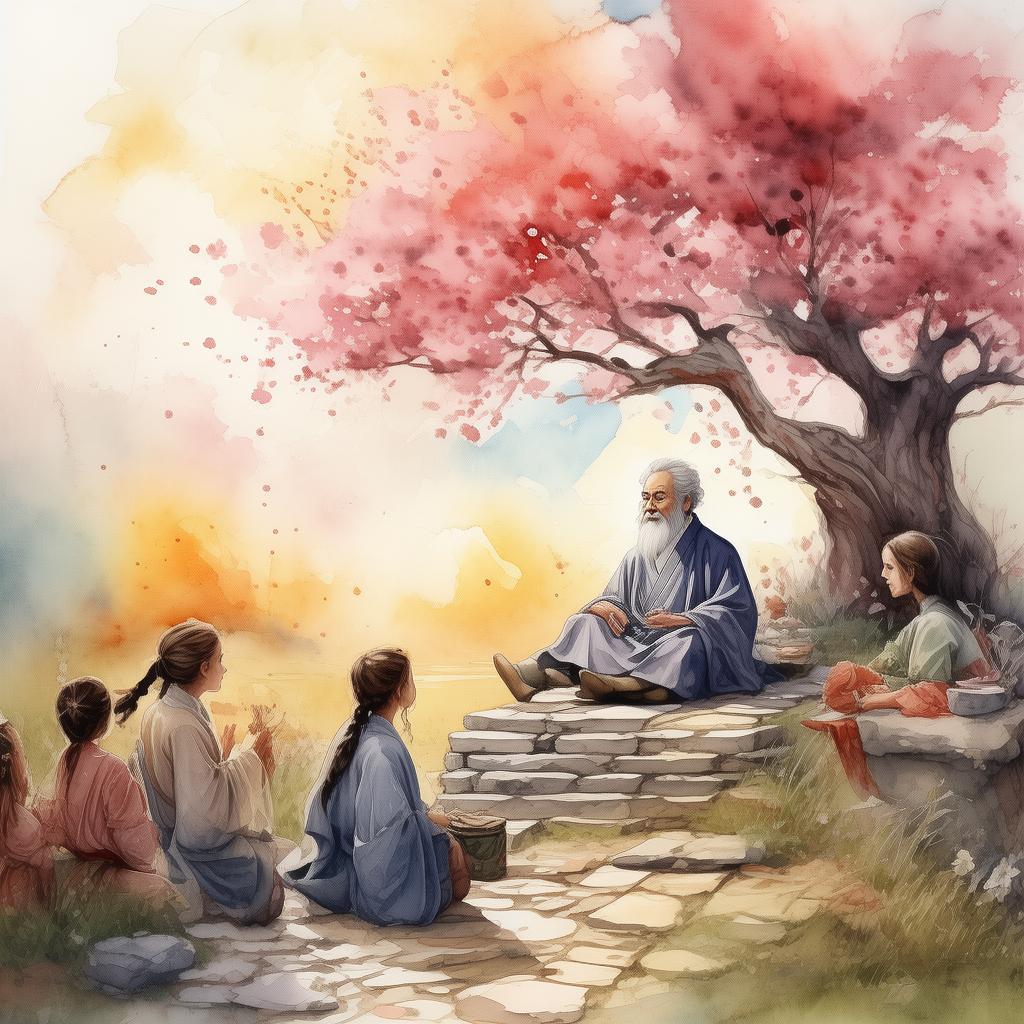The Brush that Conquered Fear: A Tale of Calligraphy and Valor
The village of Jinghe was nestled in the heart of the lush, mountainous terrain that separated the kingdom of Fenglin from its enemies. The villagers lived in harmony, their days filled with the rhythm of rice paddies, the scent of blooming orchids, and the soft whisper of the river that wound its way through the village. However, the tranquility was a fragile shell, as the kingdom's borders were often threatened by the neighboring nations.
Among the villagers was a young man named Ming, whose fingers danced across the parchment with a grace that belied his youth. Ming's passion was calligraphy, a craft he had inherited from his father, who was a master calligrapher himself. The village elders spoke of Ming's talent, predicting that he would one day become a great artist. Yet, in Ming's heart, there was a growing unease. He felt a pull towards the outside world, towards the sound of battle and the smell of courage.
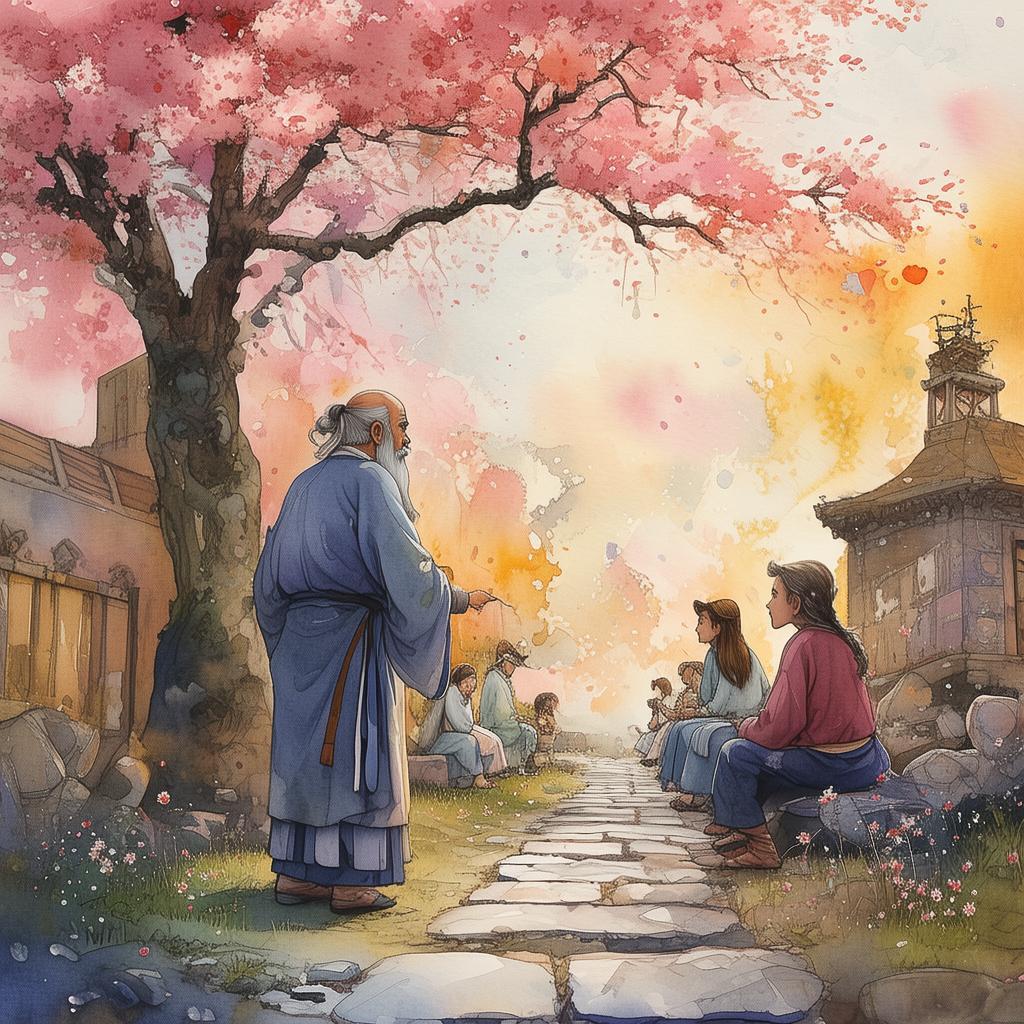
One evening, as Ming sat at his father's old desk, his thoughts were interrupted by the sound of a drumbeat. It was a call to arms. The neighboring kingdom, Ren, had declared war on Fenglin. Ming's father, who had been a warrior in his youth, rushed to prepare for battle. He took Ming aside and, with a heavy heart, handed him his most treasured possession—a brush made from the tail of a dragon.
"This brush," he said, "is more than a tool for writing. It is a symbol of strength and courage. Carry it with you, and let it guide you through this difficult time."
The following days were a whirlwind of preparation. Ming watched as his father and the villagers trained, their bodies becoming as agile and strong as the mountains that surrounded them. Ming, however, found himself drawn to the calligraphy studio. He practiced until late into the night, the brush gliding across the parchment with a newfound purpose.
The day of the battle arrived. Ming stood at the edge of the battlefield, his heart pounding with a mix of fear and determination. He lifted the dragon brush and, in a silent vow, wrote the character "勇" (yǒng, meaning courage) on his arm. With a deep breath, he stepped into the fray.
The battle was fierce. The calligraphy brush was no weapon, but Ming used it as a symbol of his resolve. When he saw a warrior falter, he would approach with the brush, writing the character "勇" on their arm, reigniting their spirit. As the day wore on, Ming became a legend among the soldiers, his presence alone a source of inspiration.
In the heat of battle, Ming was separated from the main force. He found himself in a clearing, surrounded by Ren soldiers. They were a fearsome sight, their armor gleaming in the sunlight, their swords brandished menacingly. Ming's heart raced, but he did not flee. Instead, he lifted the brush and began to write.
The soldiers were taken aback by this sight, a young man calmly writing on the ground. One of them stepped forward, his sword raised. Ming did not look at the sword, but instead wrote the character "勇" on his own arm. The soldier paused, his hand trembling. He lowered his sword, his eyes filled with a new respect.
The other soldiers followed suit, their animosity giving way to a deep respect for Ming's bravery. The battle ended not with swords and arrows, but with a shared respect for courage and art.
As the dust settled, Ming returned to his village, his brush stained with blood and soil. The villagers welcomed him with open arms, their eyes reflecting the bravery they had witnessed. Ming did not speak of his experiences, but instead returned to his calligraphy.
Years passed, and Ming's calligraphy became more profound. He no longer painted the landscapes of his village or the characters of ancient tales; instead, he painted the essence of the courage he had seen on the battlefield. His work spoke to the hearts of all who saw it, a testament to the power of art and the indomitable spirit of humanity.
And so, the village of Jinghe became known not only for its beauty but also for the young calligrapher who had used his art to inspire a nation. Ming's story was told and retold, and the brush that had once been a symbol of his father's strength became a symbol of courage and victory throughout the kingdom of Fenglin.
In the end, it was not the swords or the arrows that won the day, but the brush in Ming's hand. His story, like his calligraphy, was a reminder that sometimes, the greatest conquests are won not in battle, but in the heart.
✨ Original Statement ✨
All articles published on this website (including but not limited to text, images, videos, and other content) are original or authorized for reposting and are protected by relevant laws. Without the explicit written permission of this website, no individual or organization may copy, modify, repost, or use the content for commercial purposes.
If you need to quote or cooperate, please contact this site for authorization. We reserve the right to pursue legal responsibility for any unauthorized use.
Hereby declared.
